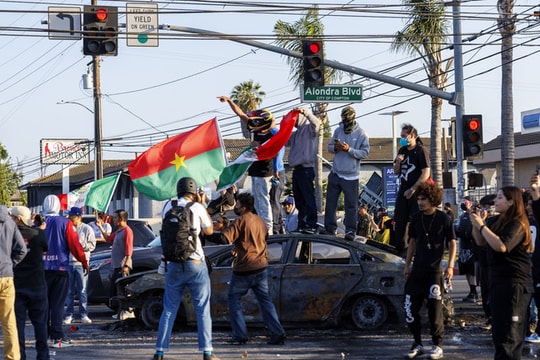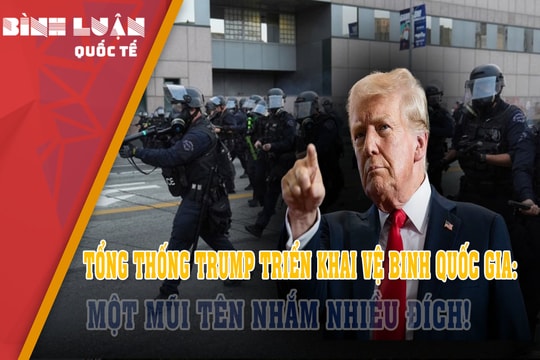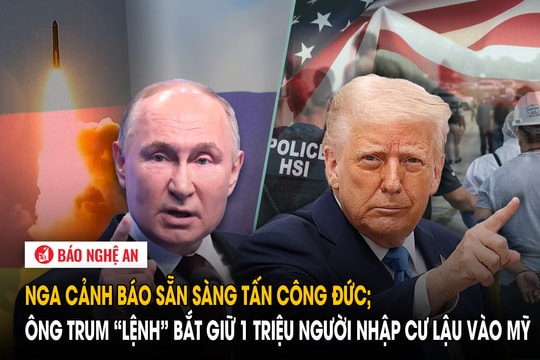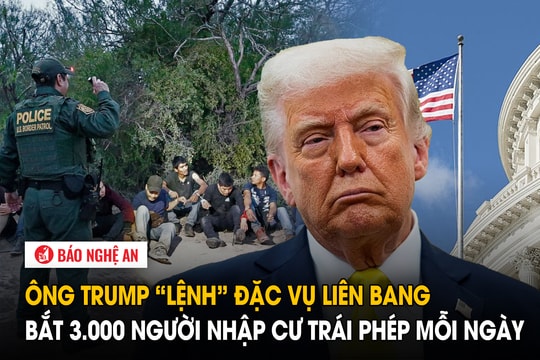Europe's rare hope
(Baonghean) - Many people used to say that Federica Mogherini was too young and inexperienced to take on the position of “Foreign Minister” of the European Union (EU). But now, her name is mentioned in the list of leading politicians in the region.
Outstanding representative of integration
Everything was perfect. Recently, Federica Mogherini was present at a ceremony at the Sala Regia in the heart of the Vatican. It was a ceremony to present Pope Francis with the Charlemagne Prize for his work in promoting European unity. Mogherini didn’t seem to have much to do there.
Vatican protocol had her seated in the second row. But Mogherini didn’t want to be seen as a mere “flower vase.” Luckily, Italian Prime Minister Mateo Renzi, a supporter of hers, had just entered the room. The opportunity presented itself, and Mogherini immediately stepped into the front row to greet the Italian leader. One step, but it brought Mogherini into the inner circle of power. And she stayed there until the press had finished their work at the ceremony.
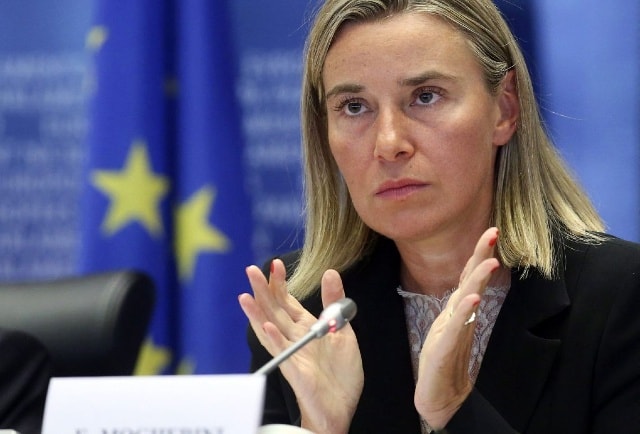 |
| Italian diplomat Federica Mogherini is a prominent representative of the EU's integration policy. Photo: Euactive. |
Mogherini knows how to take centre stage. That is the ultimate skill she must have to serve as the EU’s High Representative for Foreign Affairs and Security Policy. The title does not come with much power. She does not command an EU army or a bureaucracy. To achieve her goals, Mogherini will need the cunning and diplomatic skills to persuade her 28 male colleagues from the bloc’s member states.
Italian diplomat Federica Mogherini is a symbol of the generational change in leadership in Brussels, the EU's power center. At 42, Mogherini was Italy's youngest foreign minister. She is the first of a generation of 40-year-olds to hold a senior position in Europe.
And Mogherini has the attributes of a generation that grew up with the freedoms that the Union helped create. Transnational railways, borderless travel, Erasmus scholarships for European university exchanges and the single currency. She understands the spirit and benefits of integration. And now she will represent that generation, writing the next page in European history.
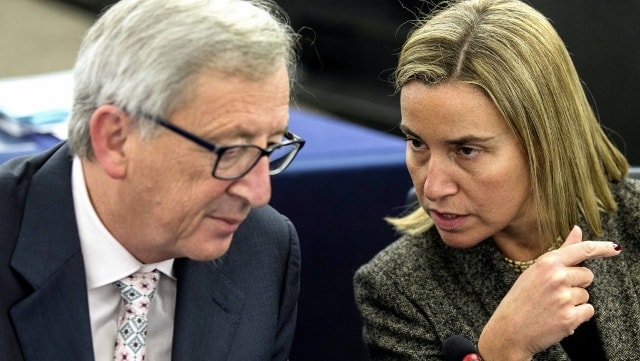 |
| Mogherini is expected to help keep the EU ship united and on track. Photo: Sputnik |
A lighthouse in the “immigration tsunami”
The difference Federica Mogherini makes is her very harmonious leadership style. It is a clear contrast to the rigidity of her predecessor from the UK - Catherine Ashton.
The difference comes in the way the migrant crisis is handled. Despite unprecedented disagreement among member states over how to deal with the massive influx, Mogherini has brought the continent to at least one point of agreement: a mission to patrol the coast of Libya to intercept boats carrying people to Europe and rescue migrants from sinking vessels.
The arduous "diplomatic battle"
The problem for Europe’s “foreign minister” is that the real power in the bloc’s foreign policy lies largely with the governments of its member states. This reality she has experienced on every trip abroad. The most recent example was a day in April when she went to Iran. The warm welcome from her hosts in Tehran made it seem as if the two sides had turned a new page.
“We have opened a new chapter,” Mogherini said confidently, standing next to Iranian Foreign Minister Mohammad Javad Zarif. “I say on behalf of 500 million Europeans that we want to promote a new era in this relationship.” But Iranian journalists were less convinced of that prospect. They asked when Iran would benefit from the lifting of economic sanctions. There was little Mogherini could say now or later. Many foreign banks were still waiting for the US nod before they could start disbursing loans to Iran.
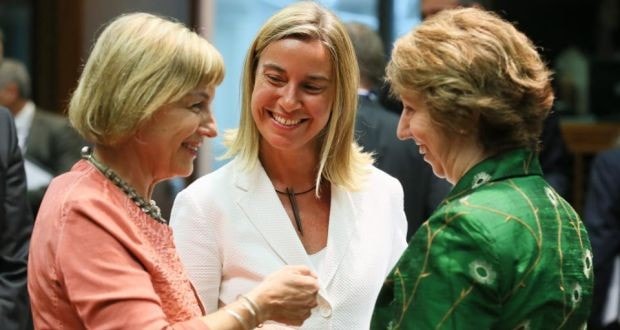 |
| Mogherini is a rare female leader holding a high position in the Brussels apparatus. Photo: Politico. |
But Mogherini is not to be blamed. The power of the “commander” of European diplomacy is very limited. It is placed not only in relation to the American superpower, but also largely in relation to the EU member states. The EU countries refuse to loosen their influence on foreign policy.
EU meetings on foreign affairs are returning to the old pattern. The most recent was a meeting of foreign ministers in Luxembourg earlier this year, which was over whether the EU should join the hunt for IS. The British and French foreign ministers argued so fiercely that their counterparts suddenly felt like they were playing supporting roles in a movie. The situation forced Mogherini to “grab the mic” and say: “I am the chair here and this issue will be discussed among the 28 current members, not bilaterally.”
Mogherini shook her head at the bickering of her male colleagues. “We have too much to do. We can complement each other.” But she also knew that this was a lonely wish at the moment. A wave of nationalism, or a return to conservative, far-right views, was sweeping across Europe. It was not just Britain, which had chosen to turn its back on the whole of Europe. Against such a backdrop, the idea of a common European foreign policy seemed increasingly remote.
Despite this, Mogherini is trying to bring about change. She has just unveiled a new foreign policy strategy for the EU, the first since 2003. This is not a coup, but an attempt to counter the growing disenchantment that is now prevalent in the EU.
Phan Tung
| RELATED NEWS |
|---|


.jpg)

